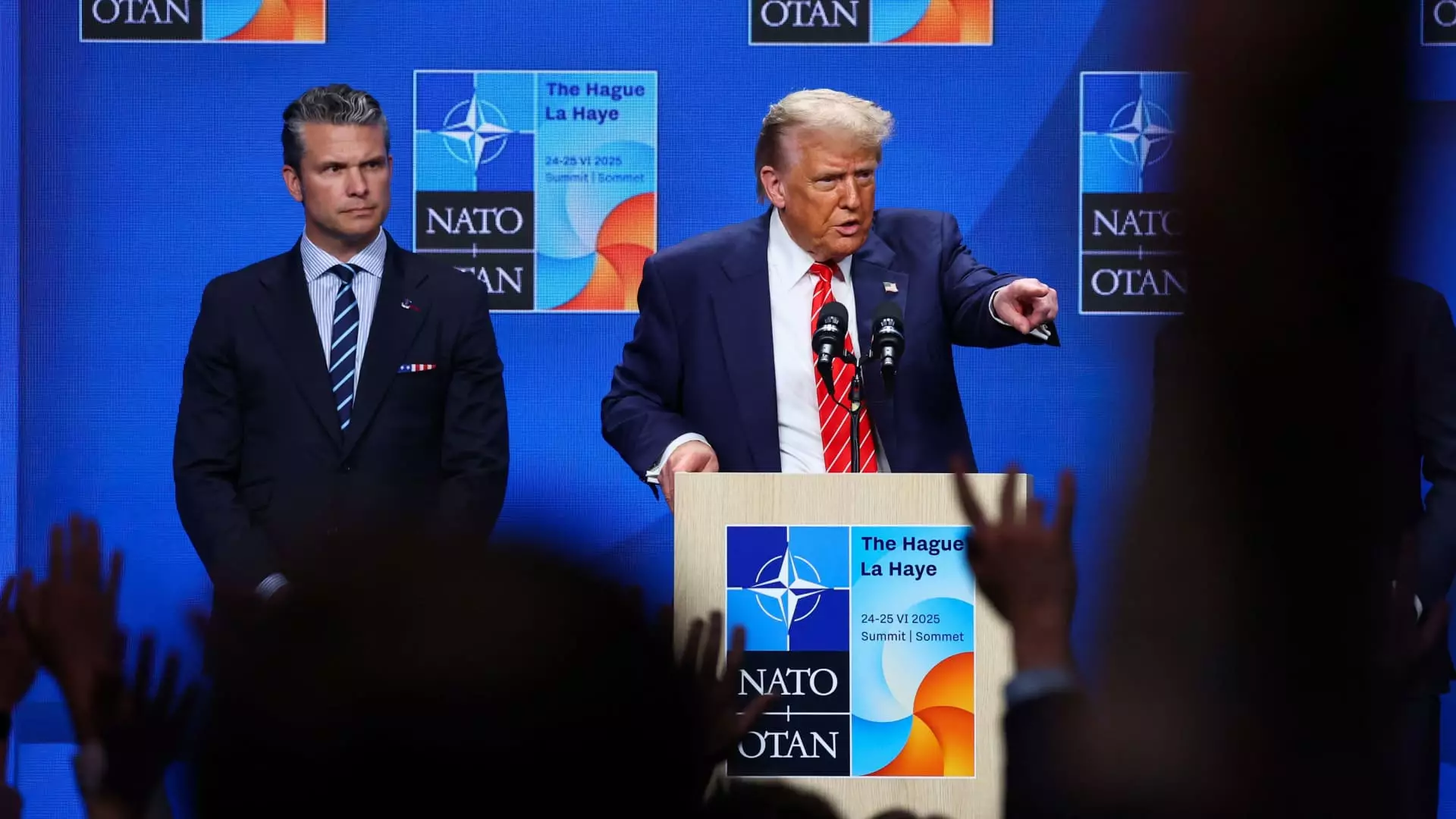In a bold yet troubling display of unwavering confidence, President Donald Trump recently insisted that U.S. airstrikes had completely annihilated Iran’s nuclear capabilities. His assertions, made during a press conference, highlight a problematic pattern within his administration: a penchant for manipulation of facts to fit a narrative that emphasizes strength, often at the expense of truth. While Trump’s proclamations exude a sense of victory, they tread dangerously close to being mere propaganda, as recent intelligence assessments contradict his staunch claims. This manipulation of reality not only distorts public perception but also presents significant geopolitical implications.
Indeed, the President’s assertion regarding the total obliteration of the Iranian nuclear site at Fordo is deeply troubling. Reports indicate that, contrary to his claims, intelligence assessments suggest that the U.S. airstrikes primarily set back Iran’s nuclear program by mere months, rather than completely eradicating it. Such information, if accurate, suggests that the administration may be deliberately overselling the impact of these military actions, possibly to bolster a narrative of triumph ahead of elections or to justify a hawkish defense policy. This raises critical questions about the integrity of information coming from the highest echelons of our government.
Defiance Against Dissent: The Administration’s Reaction
The White House has rejected intelligence community analyses with an intensity that suggests a refusal to confront uncomfortable truths. Trump and his officials disparaged the report’s integrity, labeling its sources as “low-level losers.” This not only undermines the credibility of the intelligence community but also reflects an alarming trend in modern politics: the habit of discrediting information that does not align with one’s agenda. Rather than engaging in a substantive debate about the effectiveness of military strategy, the administration seems more interested in rallying support through the suppression of dissenting opinions.
Furthermore, Trump’s mockery of the intelligence assessments emphasizes a chilling reality: an environment where the truth becomes malleable and subject to the whims of political necessity. In his remarks, he suggested that the report was inadequately timed, implying that it lacks the depth required for a comprehensive understanding of the airstrikes’ impact. This tactic of deflection – portraying the report as incomplete and dismissively categorizing its conclusions as secondary – is emblematic of a broader trend problematizing the reliability of institutional knowledge.
The Push for Unyielding Narratives
Compounding this issue is the denigration of journalistic integrity as merely “fake news,” a term frequently employed by the Trump administration to delegitimize media outlets that question its policies. In confronting credible journalism and leaking reasonable assessments, the administration promotes a one-dimensional narrative that glorifies military solutions while dismissing nuanced discussions about international diplomacy and long-term strategies. The insistence on presenting a narrative of unmitigated success at the cost of factual accuracy damages public trust in both the government and the media.
Moreover, Trump’s administration has framed the narrative through a lens where the destruction of Iran’s nuclear ambitions is not just a tactical victory but a heady reminder of American military prowess. This framing might play well with certain voter bases but ignores the complexities involved in nuclear proliferation. Efforts to portray military strikes as the ultimate solution diminish the importance of diplomatic negotiations and multilateral efforts necessary to sustainably curtail nuclear threats in regions fraught with instability.
The Unraveling of Strategic Engagements
The fatalistic view that military action can singularly solve nuclear proliferation also dismisses historical lessons where violence often begets further conflict and destabilizes regions for generations. Highlighting the complicity of allies such as Israel in this narrative further complicates the situation, as their voices amplify American rhetoric to a dangerous crescendo. It compels us to question whether a focus on military might is indeed our best strategy for maintaining global peace or simply a perilous gamble driven more by domestic political targets than thoughtful foreign policy.
In essence, the insistence on achieving what are portrayed as decisive victories in foreign conflicts could have catastrophic ramifications, bringing not only the potential for expanded hostilities but also the disintegration of crucial international alliances. As voters and citizens, we must remain vigilant, demanding accountability and adherence to truthfulness from those we elect to lead us on the world stage.

Leave a Reply